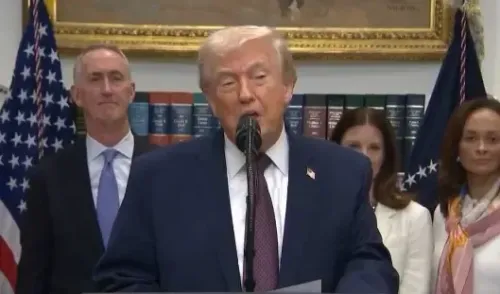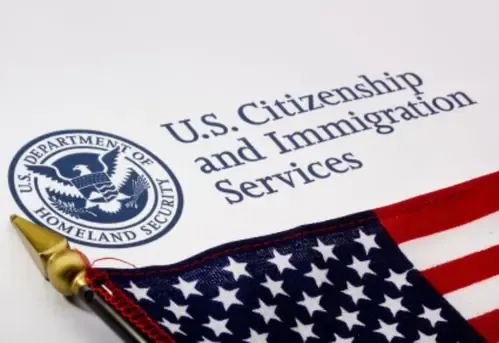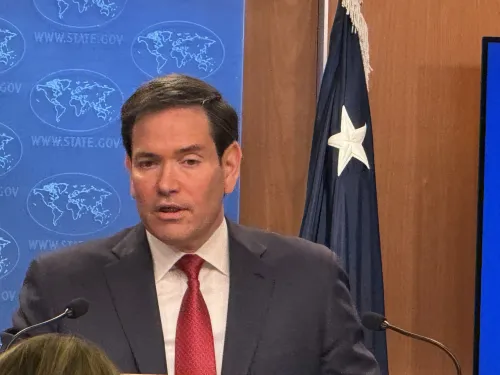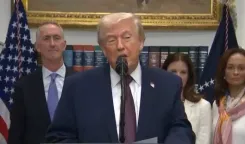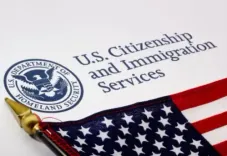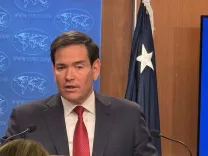Did Rubio Reassert India-Pak Mediation Claims?
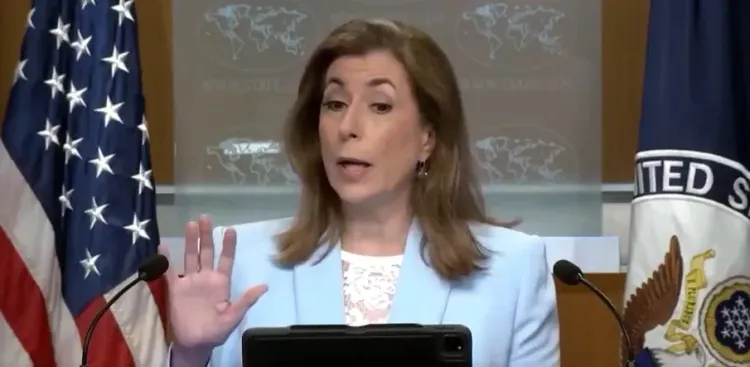
Synopsis
Key Takeaways
- Secretary Rubio claims US mediation in the India-Pakistan conflict.
- State Department emphasizes that opinions vary on the matter.
- PM Modi denies any third-party involvement.
- Indian officials assert direct handling of issues between the nations.
- Discussion on President Trump's Nobel nomination raises questions.
New York, July 9 (NationPress) Following Secretary of State Marco Rubio's reaffirmation of President Donald Trump's assertion that he facilitated a resolution to the dispute between India and Pakistan, State Department Spokesperson Tammy Bruce remarked that any denial of this claim is merely "an opinion."
"We played a crucial role in preventing and ending a war between India and Pakistan," Rubio stated during an open cabinet meeting on Tuesday, highlighting US diplomatic successes in the initial six months of Trump's term.
Bruce referenced Rubio's remarks at the subsequent State Department briefing, where a journalist from Pakistani media used inappropriate language about members of Prime Minister Narendra Modi's cabinet for disputing the US involvement.
She stated, "Donald Trump is here to facilitate clarity in these matters. Secretary Marco Rubio shares this goal, alongside the Vice President, who is also engaged in negotiations with Pakistan and India, including JD Vance."
During a recent phone conversation, PM Modi directly informed Trump that there was no third-party mediation or discussions regarding trade talks, contradicting Trump's earlier claims.
External Affairs Minister S. Jaishankar consistently denied during his recent trip to New York and Washington that any US mediation occurred, asserting that India and Pakistan addressed the matter independently.
Furthermore, Pakistan's Director General of Military Operations, Major General Kashif Abdullah, directly contacted his Indian counterpart, Lieutenant General Rajiv Ghai, to request a ceasefire.
In response to the Pakistani journalist, Bruce provided a lengthy and convoluted reply without naming anyone or making a direct counterargument, stating, "The world is unfolding before us on both large and small screens. Everyone is entitled to an opinion, but some opinions are incorrect."
"While my opinions are seldom wrong, others may not be accurate," she continued. "We have the responsibility to analyze and make judgments, understanding the clarity of ongoing global events every day," she added.
Bruce spoke about how television technology has evolved from her childhood to the present, where broadcasts can be viewed on mobile devices, emphasizing how swiftly information can change and the importance of forming one’s own opinions regarding global affairs.
However, there was no media evidence showcasing any interventions by Trump or his representatives.
The journalist highlighted Pakistan's military chief, Asim Munir, having nominated Trump for a Nobel Prize.
Bruce seemed to accept that Trump is unlikely to receive it, stating, "The President has made it clear that he does not anticipate winning such an award."
"However, he deserves every accolade. He should receive this one for the Abraham Accords," she asserted. "There are numerous achievements he merits recognition for, but I am uncertain if he will receive them in this world."
She added, "Ultimately, what he has attained is the most significant honor of all—the presidency of the United States."


